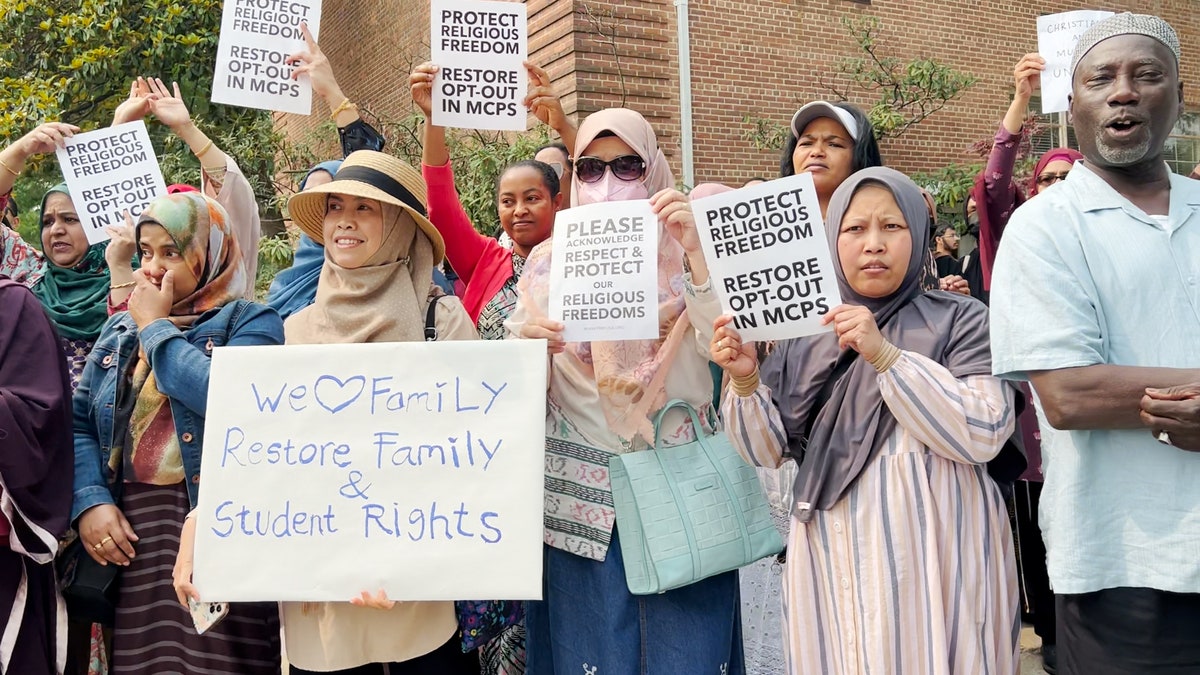Southern Poverty Law Center names Moms for Liberty in 'hate and extremism' report
Moms for Liberty co-founder Tina Descovich joined 'Fox & Friends First' to discuss her reaction to the report and why the allegations against the organization are 'ridiculous.'
The Southern Poverty Law Center recently released updates to its list of hate and anti-government groups to include a number of newly added education-focused groups.
This new list is the second in which the SPLC merged "hate" and "anti-government" groups into one category, equating beliefs that the federal government is overbearing with being racist – a charge that highlights the overtly political and extreme nature of the group and severely discredits the lists it creates.
Many of the parent groups cited in the new SPLC list formed or became heavily involved in education during the COVID years, when parents had a new and sometimes jarring look into their children’s classrooms as they were moved from the local schoolhouse to kitchen tables via Zoom.

A Scott Rasmussen poll shows that 84% of voters believe parents should be able to see all curriculum plans and materials used in their child’s school. (Asra Normani)
As a result, these parent groups focus on transparency in schools and use that transparency as a tool to ensure public education is non-political and age appropriate, equipping parents with the information they need to support their children and voice concerns through the appropriate school channels.
The SPLC has resorted to suggesting groups focused on public school curriculum transparency are hate groups because simply coming out against curriculum transparency is a losing issue. A Scott Rasmussen poll shows that 84% of voters believe parents should be able to see all curriculum plans and materials used in their child’s school.
It is surprising the SPLC, widely known as left-leaning and a purported defender of vulnerable populations, has chosen to be aggressive against groups favoring curriculum transparency based on the data.
A recent State Policy Network poll shows Democrats are more likely than Republicans to believe being able to access student curriculum is highly important. Half of Democrats, twice as many as Republicans, believe public schools are deviating from approved curriculum "often." This runs counter to the media narrative that only right-wing extremists have concerns about what is happening inside schools.
If the Biden administration had realized this was a bipartisan concern, maybe it would have thought twice about siccing the FBI on the tail of parents engaging with their local school boards.
ASSAULT ON CONSERVATIVE GROUPS: 10 THINGS YOU NEED TO KNOW ABOUT SOUTHERN POVERTY LAW CENTER
Furthermore, while a minority say it’s difficult to access material used in the classroom, the numbers are higher for Black parents and significantly higher among lower-income parents, suggesting discriminatory patterns in who can easily access public information about their community schools. This seems like it would be of concern for a group working for "the exploited, the powerless and the forgotten."
In many cases, attacks against curriculum transparency in schools focus on it being a gateway to parents trying to influence what is taught in schools. While that charge may work to rally activists, most Americans are likely to find it unpersuasive. An earlier State Policy Network poll found that seven in 10 voters believe parents should have more input on what is taught in public schools, with people of all races and socio-economic backgrounds agreeing at similar rates. Data only differs on political affiliation – but still a majority of Democrats agree that parents should have more input.
An insider account of the SPLC published pre-COVID explains why the group would go after a bipartisan issue important to most Americans. A former staffer remembers a case that embodied the organization: "…it was a vintage example of the center’s central strategy: taking on cases guaranteed to make headlines and inflame the far right while demonstrating to potential donors that the center has not only all the right enemies but also the grit and know-how to take them down."
CLICK HERE TO GET THE OPINION NEWSLETTER
Groups that oppose curriculum transparency – because they want their attempts to push a political agenda to stay hidden – have turned to the extreme tactic of labeling opponents as hateful to try to quell the rising tide demanding accountability from public schools.
Parents and voters must not take the bait. Instead, diverse groups within communities must demand transparency from local schools and use that information, and their voices, to ensure schools meet the goal of providing an appropriate, inclusive and quality education for all.












































